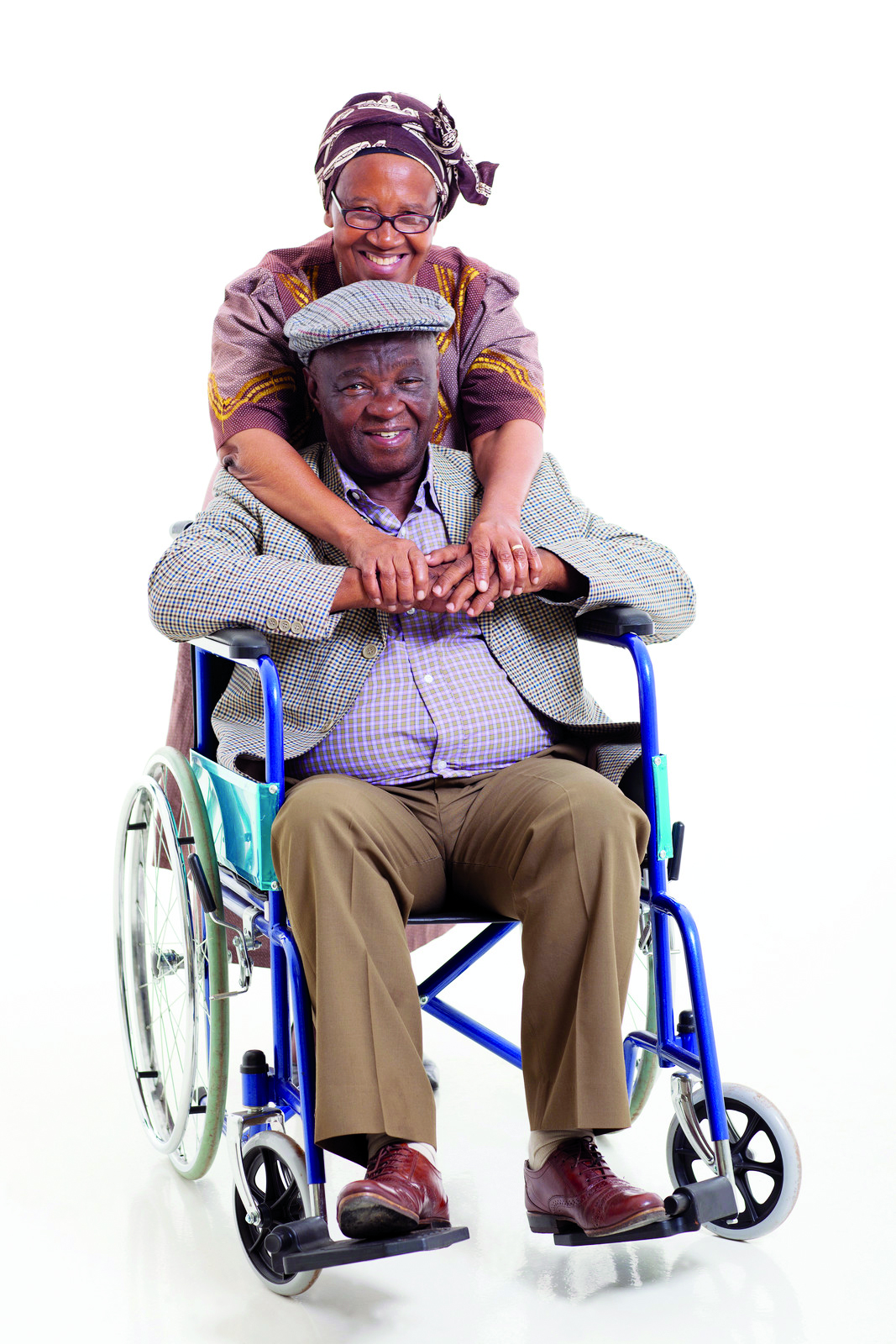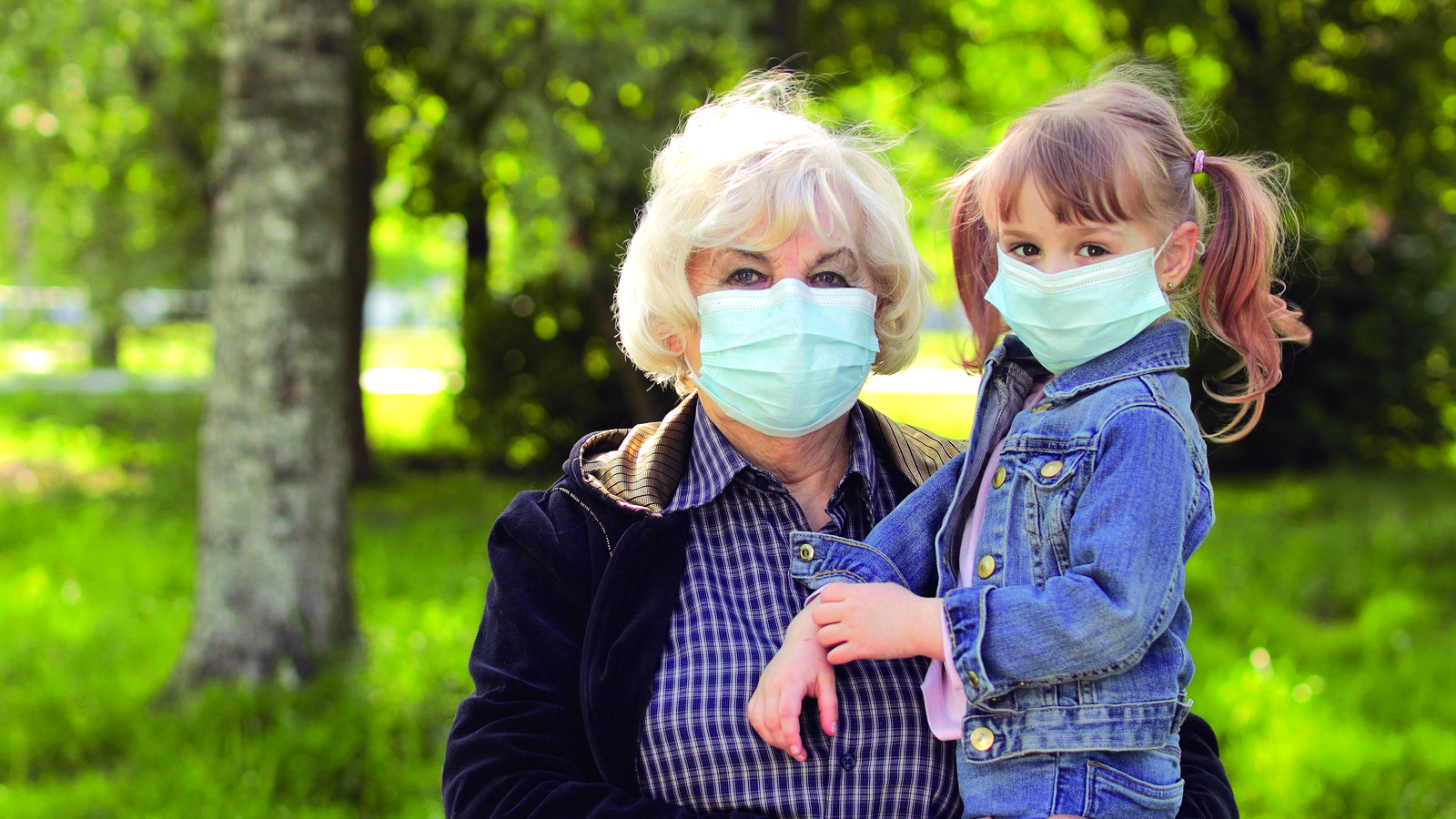VISITING GRANDMA
Is it safe for me and my children to visit older adults in our family during this time? Everyone should be aiming to interact closely with as few vulnerable adults as possible to be on the safe side. Make your “bubble” of a few people and stick with it. Reducing the number of people an older adult comes into contact lowers the risk. However, the goal isn’t to isolate your older adult either. You may want to arrange short social distancing visits, one person at a time, keep up regular phone or video calls and continue shopping for them. Check out this helpful guide: https://files. ontario.ca/moh-how-to-build-your-social- circle-en-2020-06-12.pdf

HYGIENE SUGGESTIONS
My father is 91 and lives alone. He is capable of taking a shower, but he doesn’t want to have one every day. I also noticed he was not changing his underwear daily! He says he knows when he needs a shower. He is quite sedentary but gets out for a walk most days. How often should he bathe? What about underwear?
It’s possible that your father is stubborn or simply doesn’t want to give up control of when he showers. But it’s also possible that he may have cognitive impairments that are causing this behaviour. Someone with Alzheimer’s, dementia, or a treatable condition with similar symptoms may also develop poor hygiene habits. Talk to your dad’s doctor for some recommendations that will be easy to follow.

CAREGIVING DURING COVID-19
My father and mother live with me. I’ve been working from home but now I’m going back and I’m nervous about bringing home the virus. They have PSW’s coming and going too. What do you recommend?
It’s a scary time because older adults are at higher risk for developing severe illness if they’re infected with COVID-19. But they also need a great deal of personal care in order to get through the day. Staying six feet (two metres) away or avoiding personal contact is simply impossible. Every care situation is different.
Reduce risk by following Canada.ca’s recommendations for high-risk individuals and wearing masks. Take time to learn the facts and take time to prepare. Educate staff about ways to prevent the spread of COVID-19 by:
- Washing hands often with soap and water for at least 20 seconds, especially after using the washroom and when preparing food.
- Use alcohol- based hand sanitizer if soap and water are not available.
- Increasing access to hand hygiene and cough etiquette supplies (e.g., alcohol-based hand rub, soap, paper towels, tissues, waste containers).
- Cleaning frequently used spaces, surfaces and objects (kitchens, common areas, dining areas, desks, shared sleeping spaces, doorknobs, and faucets).
- Maintain physical distancing, keeping at least two metres from other people and wear a clean mask.
- Staying home when sick.
The questions in this issue of Caregiver Solutions were answered by the experts at the Canadian Abilities Foundation and Canada Cares (www.canadianabilities.org).













